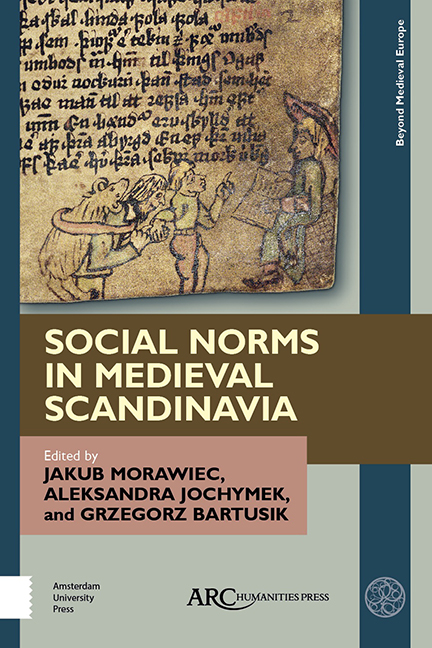Chapter 10 - The Unfamiliar Other: Distortions of Social Cognition Through Disguise in Two Íslendingasögur
Published online by Cambridge University Press: 20 November 2020
Summary
THIS CHAPTER INVESTIGATES how the protagonists of two Íslendingasögur, namely Fóstbroeðra saga and Droplaugarsona saga, use disguise in such a way as to distort the social cognition of their opponents, thereby allowing them to gain an advantage over their enemies. The term “social cognition” is most commonly used as a technical term within the field of social psychology, where, on its most basic level, it refers to the various mental processes, such as stereotyping and the creation of social schemas, by which people conceptualize their relationships with and towards other people. These processes are related to the development of social norms, in that they produce frameworks of behavioural expectation which relate to the types of individuals and groups that a person might encounter. These frameworks lead people to develop preconceptions as to how to interact with others in different social situations, thereby allowing them to predict more comfortably the behaviour of other people and to react accordingly. As Susan Fiske and Shelley Taylor put it,
Like it or not, we all make assumptions about other people, ourselves, and the situations we encounter […] Much of the time our expectations are functional, and indeed, we would be unable to operate without them. Such expectations, assumptions, and generic prior knowledge allow us some sense of prediction and control, which is essential to our well-being […] Categories and schemas allow us the comforting sense that we understand our world, and often they are accurate enough, although sometimes they are sadly mistaken.
At its most basic level, the exploration of social cognition therefore looks to explain “how people make sense of other people and themselves.” It would be anachronistic to apply the specific findings of psychological research to saga literature, given that the terminology and scientific methods of this modern discipline were not available to the sagas’ medieval audiences, but it can nevertheless be useful in reading the sagas to consider the core concept of social cognition, that a person's understanding of their social landscape is rooted in the expectations that they have of how other people are likely to think and behave in different situations. This chapter therefore uses the term “social cognition” in a broad sense to refer to the nexus of social norms and expectations that figures in saga literature could reasonably be said to have in relation to particular individuals and to different types of people.
- Type
- Chapter
- Information
- Social Norms in Medieval Scandinavia , pp. 187 - 200Publisher: Amsterdam University PressPrint publication year: 2019



